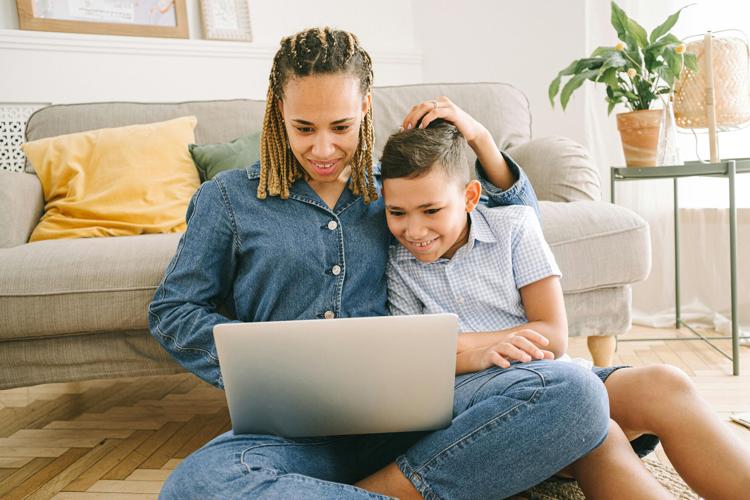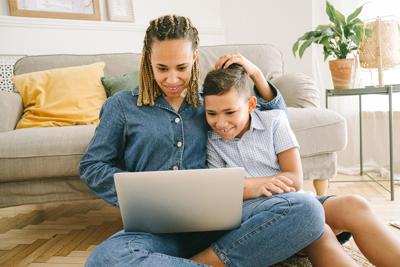The benefits of camp go well beyond getting kids outdoors and having fun, itâs also an opportunity for them to grow, said Rachel Naud.
âCamp is a great chance for kids to experience independence,â said Naud, who is the founder and editor of InBetween Magazine, a digital publication that is geared toward the parents of tweens, teens and young adults.
âItâs going to help them see how theyâll be able to make decisions on their own, like choosing what to wear or what to do during their free time. It offers them an opportunity to grow up a little bit.â
Naud is also a mother who has experienced sending her own son to day camp when he was around six years old and sleepaway camps when he was a little older.
âHe was always one of those kids that was a little bit, not really shy, but liked being home and liked being with his family,â she said. âHe didnât really like change, but once he was away and doing his thing, he was totally fine.â

Rachel Naud
ProvidedWe asked Naud to provide some tips to parents who may be sending their child away to camp for the first time.
In popular culture, you see these depictions of kids being anxious and worried about going to camp. Why is that?
It is just change, right? It is the unknown. When you think about it, whenever youâre about to do something thatâs unknown, it is a little bit scary and a little bit intimidating. For a lot of these kids, this is the first time that they are away from the family home, that they are away from their parents, away from their bedroom, from everything that creates comfort for them. You are taking them out of their comfort zone.
What are some tips that you would offer parents to lessen that anxiety and get their child excited about camp?
Leading up to camp there is different things that you can do. For instance, it happens months in advance; if youâre signing your child up for camp â especially if itâs a popular camp and you want to save a spot â you need to do it in advance.
The first thing you could do is really get them involved in the preparation. For instance, if theyâre going to a camp thatâs a couple hours away, maybe to Muskoka or somewhere like that, in the wintertime youâre not necessarily going to go up there because theyâre not really going to see the benefit of it. They are not going to see all the fun games, and the water and the trees in full bloom. Itâs all snowy and gross out. But what you can do is sit down with them and look on the camp website, show them all the fun things they are going to do.
A lot of these camps have YouTube videos that you can go over together. Review them and be like âhey, look at this fun placeâ and âoh my gosh this water slide looks so fun.â Just really get them excited about the activities that theyâre going to do. I think this gets them excited but also takes away some of their anxiety.
What else can you do before they go to camp?
Youâre going to have to send them with a bunch of things that they are going to need, whether that is a sleeping bag or maybe putting together a camp kit, so take them shopping with you. Let them pick out the things theyâre going to want and going to need for camp. That is really going to help get them excited. Think about the first day school; kids never really want to go back to school but they love the back-to-school shopping part.
How would you start the conversation about being away from home and family?
I think you just have to let them know that itâs completely normal to feel a little bit scared about leaving home, especially if itâs their first time and they are leaving the comforts of their bedroom and their home. You can do things like let them take their favourite stuffed animal with them or something that gives them comfort from their room.
Kick it old school and write letters to them, just to reassure them. The thing is that different camps have different rules where maybe they will only let kids talk to their parents once a week, or maybe they prefer that parents donât reach out by phone while the kids are there. So just say âhey, weâre going to write you lettersâ or that youâre going to, depending on the rules of the camp because you will follow those rules, still be in touch with them. Maybe thereâs a parentâs visitation and tell them that youâre going to come up and they can show you all the fun things theyâre doing.
I think itâs just letting them know that youâre still going to be there even though youâre not there.
Should you also talk to them about your own camp experiences?
Come at it from a point of honesty: âYou know what, I was really afraid as well when I was going to camp and I didnât know what to expect.â And when you think about it, you know we didnât have the Internet and our parents couldnât show us anything beforehand. Maybe we would have seen a pamphlet or something like that, but more or less they were dropping us off and that was it.
Just reassure them that was totally normal and, although you may have been a little bit afraid, it was exciting to be there and fun to make new friends. Everybodyâs in the same boat and I think thatâs a good point to make to your child. Yeah, you might be a little bit nervous and a little bit scared, but guess what, so is everybody else thatâs there. Especially if itâs their first time, too.
And, if you get a call from camp saying they want to come home, what is your advice?
I donât know that it would happen because I donât know that camps would do that anymore. A lot of them have a rule where, at least for the first couple of days, they want kids to acclimate to where they are and give it a chance.
Being homesick is obviously very normal and something that is going to happen especially during the first night or two. If a child is really disruptive, obviously they would let them call their parents, but in that case, as a parent, the worst thing you can do is go get them, I think. Your job is to just reassure them and empower them.
If your child does call you crying on the first night and saying that they want to come home or are unhappy, just reassure them and make them feel empowered that they can do this and you have confidence in them that they can do it.
Note: This interview has been edited for length and clarity.


























